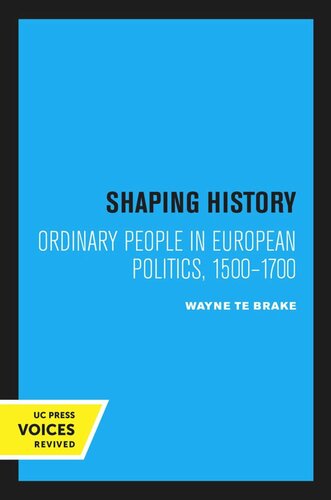

Most ebook files are in PDF format, so you can easily read them using various software such as Foxit Reader or directly on the Google Chrome browser.
Some ebook files are released by publishers in other formats such as .awz, .mobi, .epub, .fb2, etc. You may need to install specific software to read these formats on mobile/PC, such as Calibre.
Please read the tutorial at this link: https://ebookbell.com/faq
We offer FREE conversion to the popular formats you request; however, this may take some time. Therefore, right after payment, please email us, and we will try to provide the service as quickly as possible.
For some exceptional file formats or broken links (if any), please refrain from opening any disputes. Instead, email us first, and we will try to assist within a maximum of 6 hours.
EbookBell Team

5.0
20 reviewsAs long as there have been governments, ordinary people have been acting in a variety of often informal or extralegal ways to influence the rulers who claimed authority over them. Shaping History shows how ordinary people broke down the institutional and cultural barriers that separated elite from popular politics in sixteenth- and seventeenth-century Europe and entered fully into the historical process of European state formation. Wayne te Brake's outstanding synthesis builds on the many studies of popular political action in specific settings and conflicts, locating the interaction of rulers and subjects more generally within the multiple political spaces of composite states. In these states, says Te Brake, a broad range of political subjects, often religiously divided among themselves, necessarily aligned themselves with alternative claimants to cultural and political sovereignty in challenging the cultural and fiscal demands of some rulers. This often violent interaction between subjects and rulers had particularly potent consequences during the course of the Reformation, the Counter-Reformation, and the Crisis of the Seventeenth Century. But, as Te Brake makes clear, it was an ongoing political process, not a series of separate cataclysmic events. Offering a compelling alternative to traditionally elite-centered accounts of territorial state formation in Europe, this book calls attention to the variety of ways ordinary people have molded and shaped their own political histories.